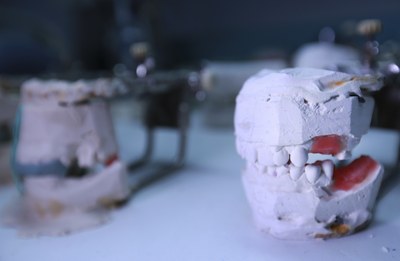Innocence Project Sues for Access to Bite Mark Archive that Could Expose Wrongful Convictions
02.20.19 By Innocence Staff
(New York, NY – February 20, 2019) The Innocence Project has sued for access to a federal archive that may hold the key to exonerating untold numbers of people who were wrongfully convicted on the basis of faulty “bite mark” evidence. The archive, which is housed at the Department of Defense’s National Museum of Health and Medicine, holds the only centralized catalogue of cases in which forensic bite mark evidence was used. It also includes documents that could reveal how this discredited forensic method evolved. The Innocence Project has already helped to exonerate dozens of people who were convicted on the basis of bite mark evidence.
“This archive could be the only way to identify unknown cases in which bite mark evidence was used and, potentially, produced wrongful convictions,” said Chris Fabricant, the Innocence Project’s Director of Strategic Litigation. “By denying us access to this federal archive, the government is preventing us from investigating the devastating toll that unreliable bite mark evidence has imposed on our criminal justice system.”
Related: Ten Years Later: The Lasting Impact of the 2009 NAS Report
In June 2017, the Innocence Project submitted a request to conduct research in the archive, which contains the records of the American Board of Forensic Odontologists (ABFO), the body that accredits bite mark experts. The Museum has standard procedures for allowing individuals to conduct research and had previously provided information from the ABFO archive to others. After consulting with the ABFO, however, the Museum refused to allow Innocence Project researchers access to the archive’s key collections. The Museum denied access because it (or the ABFO) disagreed with the Innocence Project’s research objectives, which included identifying wrongful convictions and further understanding the flaws in bite mark methods.
“The ABFO has been overtly hostile to the Innocence Project’s work to establish that bite mark methods are unreliable and to identify people wrongfully convicted as a result,” said Fabricant. “This federal museum appears to have sided with the ABFO to block our access to the archive and stifle our research.”
The lawsuit, filed today in federal district court in Manhattan, asserts that the Museum violated the First Amendment because it denied access on account of the Innocence Project’s professed viewpoint and research objectives. The Innocence Project has worked for years to establish that bite mark methods are scientifically invalid and to exonerate people wrongfully convicted based on bite mark evidence. The ABFO has often vigorously opposed these efforts.
The lawsuit also asserts claims under the Freedom of Information Act. After being denied ordinary research access to the archive, the Innocence Project filed a FOIA request for the records. A year later, the Innocence Project has yet to receive a meaningful response.
“This case is about a taxpayer-funded, federal museum deciding to improperly favor one viewpoint over another,” said John Zakour, a student attorney with the University at Buffalo School of Law’s Civil Liberties & Transparency Clinic, which is litigating the case on behalf of the Innocence Project. “The First Amendment does not allow the government to deny access to public archives just because it does not like what a person might say or do with the information they learn.”
Fabricant and Dana Delger of the Innocence Project are counsel in the lawsuit, along with student attorneys Samantha Winter, John Zakour, and John Kuebler, and supervising attorney Jonathan Manes of the University at Buffalo School of Law.
Leave a Reply
Thank you for visiting us. You can learn more about how we consider cases here. Please avoid sharing any personal information in the comments below and join us in making this a hate-speech free and safe space for everyone.
March 3, 2019 at 5:33 pm
March 2, 2019 at 10:47 pm
Will sign a petition to free innocents. God help us please.

Can we have this target the Stocking Strangler case in Columbus? The bite casts were not allowed in Carlton Gary’s case and the two dentists who made them and reviewed them wrote affidavits proclaiming that our DAs amd Police here tried to get them to say it was Carlton but wouldn’t provide a cast of his actual teeth.